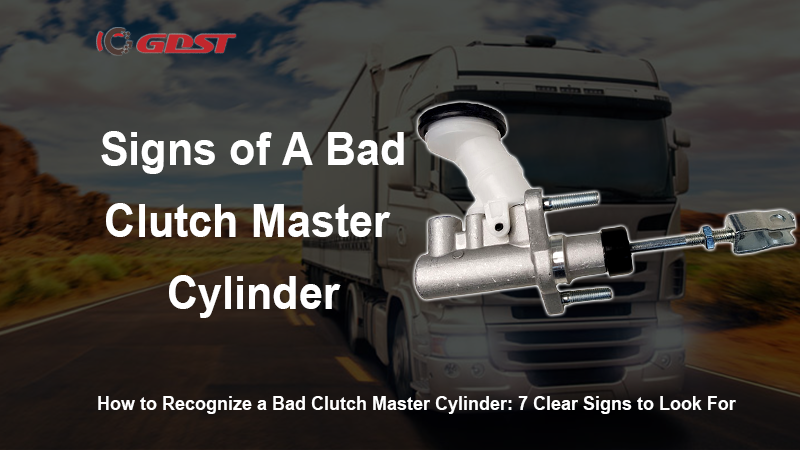If you’ve ever experienced difficulty shifting gears, a spongy clutch pedal, or strange noises when pressing your clutch, you might be dealing with a bad clutch master cylinder. Clutch master cylinders keep your vehicle shift smoothly. If it starts to fail, there will be more significant transmission issues or even make your car undriveable. In this article, we’ll walk you through the seven clear signs that your clutch master cylinder may be on its way out, and what you can do to address the issue.
Clutch problems don’t always come with a warning, but there are signs you shouldn’t ignore. Knowing what to look for can help you catch problems early before they cause major damage or safety issues.
What Happens When the Clutch Master Cylinder Fails?
A failing clutch master cylinder can cause a host of driving difficulties. The clutch pedal may feel spongy, stiff, or unresponsive, making changing gears challenging or disengaging the clutch properly. These issues make your car harder to drive and could cause dangerous situations on the road if not addressed quickly.
Spongy or Soft Clutch Pedal

A spongy or soft clutch pedal is one of the most common signs of a failing clutch master cylinder. If you press the pedal and it feels unusually soft or sinks to the floor without much resistance, it could mean there’s air in the hydraulic system, or fluid isn’t reaching the master cylinder properly. This loss of hydraulic pressure can prevent the clutch from fully engaging or disengaging.
Why It’s Important: A soft clutch pedal makes it hard to control your vehicle, especially in stop-and-go traffic or when shifting gears at higher speeds.
Difficulty Shifting Gears
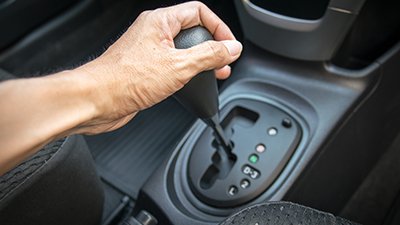
Have you ever had trouble getting your car into gear, or felt a grinding sensation when shifting? If so, the clutch master cylinder could be the culprit. A malfunctioning cylinder may fail to fully disengage the clutch when you press the pedal, making it harder to shift gears smoothly. In severe cases, it may even prevent you from shifting at all.
Why It’s Important: Shifting issues can make driving unsafe, especially in situations where you need to change gears quickly, such as merging onto highways.
Clutch Pedal Not Returning
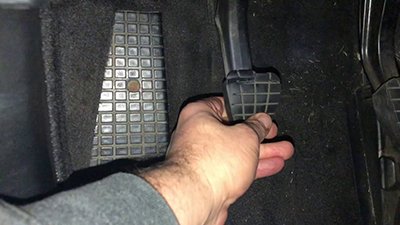
Another sign of a failing clutch master cylinder is when the clutch pedal doesn’t return to its usual position after you press it. You may notice the pedal stays near the floor, or it takes longer than usual to come back up after you release it. This issue can be caused by internal damage in the master cylinder or a loss of fluid, preventing the pedal from functioning properly.
Why It’s Important: A clutch pedal that doesn’t return can affect your ability to drive smoothly and could indicate a serious hydraulic issue within the system.
Fluid Leaks Around the Master Cylinder
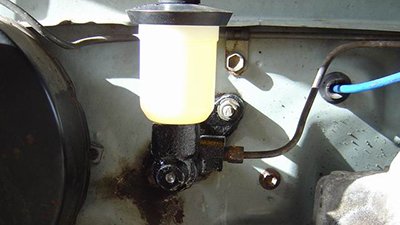
If you notice fluid pooling beneath the clutch pedal area or around the master cylinder, it’s a sign of a potential leak. A clutch master cylinder uses hydraulic fluid to operate, and any leakage could compromise the system’s pressure. Leaks may be small at first but can worsen over time, causing more severe damage.
Why It Matters: A clutch fluid leak can result in low fluid levels, which may cause the clutch to stop working. If the fluid runs out completely, the clutch will fail, leaving your car unable to function.
Strange Noises When Pressing the Clutch Pedal
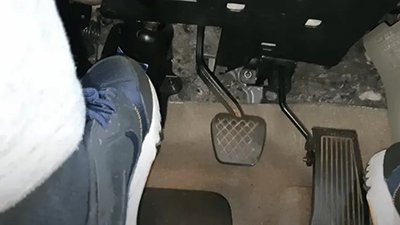
When a clutch master cylinder starts to fail, you might hear unusual noises like squeaks, grinding, or popping sounds when pressing or releasing the clutch pedal. These sounds can be caused by internal components in the master cylinder that are starting to wear down or become misaligned.
Why It Matters: Strange noises can be a sign that the hydraulic system is stressed. If not addressed, these issues could lead to more serious mechanical problems down the line.
Low or Dark Clutch Fluid
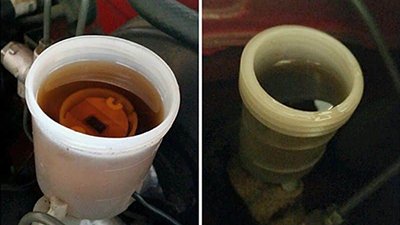
Low or dark clutch fluid is another sign of a bad master cylinder. Over time, the hydraulic fluid in your clutch system can become contaminated or break down, which affects the system’s ability to generate pressure. Dark or dirty fluid can also indicate the presence of moisture, which can cause internal damage to the clutch components.
Why It’s Important: Not checking the fluid regularly can lead to unnoticed issues, allowing the clutch master cylinder to fail gradually without any clear signs until it’s too late.
Loss of Clutch Power

A major symptom of a failing clutch master cylinder is the loss of clutch power, which can result in the inability to disengage or engage the clutch properly. You might find that the clutch doesn’t engage fully, or it feels “dead” when pressed, which can make the car difficult to drive, especially during starts or shifts.
Why It’s Important: Without clutch power, your vehicle will not be able to engage properly, causing difficulty driving and potentially leaving you stranded.
Conclusion
Early signs of a failing clutch master cylinder can be quite subtle, but if overlooked, they can lead to much bigger problems. If you notice any of the symptoms listed above, it’s time to take your vehicle in for a professional inspection. As an auto parts distributor, you should always remind your customers to monitor their clutch system regularly and address any issues promptly. Catching a bad clutch master cylinder early can save them time, money, and a lot of frustration down the road.

